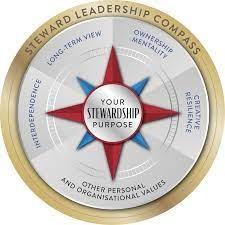In June2023, shareholders at ExxonMobil and Chevron rejected climate change proposals at the US oil majors’ annual meetings. The companies have also resisted setting emission targets for their products.
These actions show that regulation, incentives, and capital ─ primary tools used to drive and encourage behavioral change toward enabling environmental and social sustainability ─ are proving to be much less effective than hoped for. In fact, history has consistently shown that these approaches have their limitations.
Regulation: When crafted and implemented effectively, regulation does provide a framework that creates law and order. However, while regulation may prevent harm, it does not maximise good. Rules merely establish a minimum standard of acceptable conduct. Just because someone is law-abiding and refrains from indulging in bad behaviour does not make them a good, responsible person. In addition, regulations have been bypassed many times with intelligent loopholes. Think Enron. To solve for existential challenges like climate change and socioeconomic inequality, we need innovation of the highest order. Innovation cannot be legislated. It usually arises out of inspired steward leadership, where both employees and leaders see themselves as stewards of planet Earth and humanity. So, in addition to complying with regulations, corporations must create a culture of steward leadership.
Incentives: Incentives are often employed to encourage sustainable practices by rewarding compliance or achieving certain milestones. However, these incentives may inadvertently promote short-term thinking, as entities may focus on superficial changes to obtain rewards without making substantial, lasting changes. Behaviours such as greenwashing and window dressing are all too common these days, where organisations prioritise the appearance of sustainability over meaningful actions. This undermines the true essence of sustainability by misleading consumers and diluting the urgency for genuine change.
Capital: Undoubtedly, capital plays a significant role in driving sustainable practices, as investments in environmentally friendly technologies and initiatives are crucial for progress. However, as seen in the shareholder action at ExxonMobil and Chevron, capital is not achieving this objective. Why? Because not all investors see themselves as steward leaders. The invisible hand of free markets, first conceived by Adam Smith in the 18th century, is not scaling in the 21st-century world with over eight billion people. The havoc caused by climate change is already straining global resources. The International Organisation for Migration estimates that up to 200 million people could be displaced by climate change by 2050 as millions flee their homes to avoid the impact of extreme weather events. Growth has become even more lopsided, with the rich getting richer and the poor getting poorer, causing social unrest in many parts of the globe. The misuse of technology and personal data has led to the death of privacy, misinformation, and rampant manipulation of behaviour. Capital will only deliver the desired results if deployed by steward leaders.
So what is Steward Leadership?
In business, steward leadership is the genuine desire and persistence to create a collective better future for stakeholders, society, future generations, and the environment. Steward leaders accept the 21st-century leadership challenge, which is to drive profitable growth by addressing the very challenges that are threatening us today.
Steward leadership requires a change in values, norms, and attitudes, which cannot be achieved solely through external mechanisms. By focusing solely on regulatory compliance and financial incentives, we risk neglecting the importance of education, awareness, and individual responsibility in fostering lasting change. Steward leaders create a collective better future by consistently applying four specific stewardship values to decision making:
- Interdependence: Viewing the world as an interconnected system in which your success depends on the success of others.
- Long-term View: Creating sustained value for both current and future generations.
- Ownership Mentality: Taking proactive responsibility to pursue steward leadership.
- Creative Resilience: Developing tenacity to find innovative solutions to disruptive challenges.
In conclusion, while regulation, incentives, and capital are undoubtedly crucial components of the sustainability toolkit, relying solely on these mechanisms can lead to unintended consequences and ineffective outcomes. To overcome these pitfalls, it is imperative to complement these mechanisms with the holistic steward leadership approach. Boards spend a majority of their time on regulatory compliance, financial/risk management, and incentives. More often than not, they fail to give enough attention to important intangibles such as shaping the right culture, developing steward leaders, attracting and retaining superior talent, driving strategic innovation, and sustainability. In the digital economy, 65-80% of corporate valuation depends on such intangibles[1][2]. By neglecting to focus on intangibles, boards also fail in their fiduciary duty towards shareholders.
Only through the multifaceted Steward Leadership approach can we truly drive sustainability and secure a resilient future for generations to come.
[1] https://oceantomo.com/intangible-asset-market-value-study/
[2] https://saltaresolutions.com/intangible-assets-101
Read the full article here




